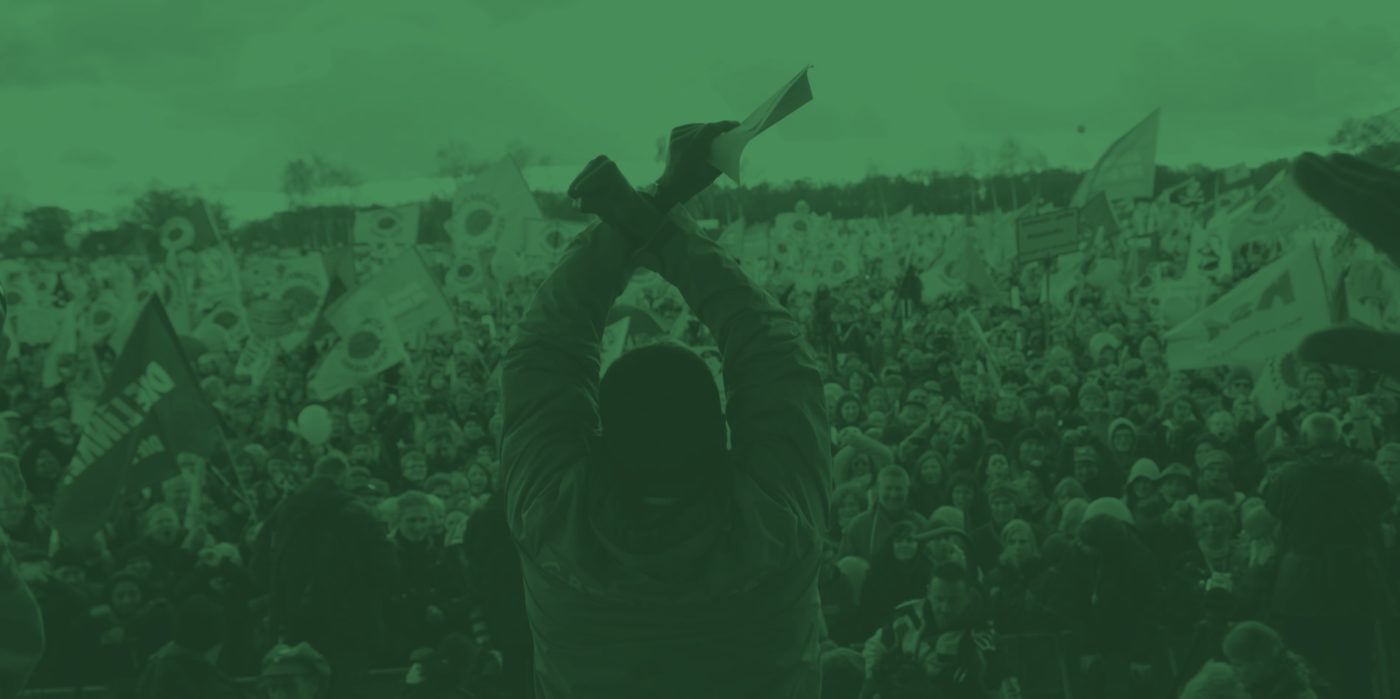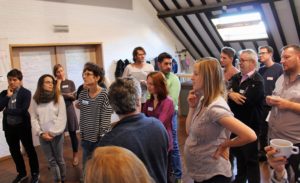Earlier this year, in the face of increasing threats to democracy, free speech, and progressive social change, our team faced unprecedented demand from global progressive leaders and change-makers to rapidly accelerate skill building and knowledge exchange for modern campaigning.
As we looked to partners and allies to figure out how we collectively scale up our work equipping individuals and organizations with the strategies, tools, and tactics they need to thrive in the digital era, we soon realized that we don’t have nearly the collective capacity to meet the needs of today’s progressive movements.
To figure out how to meet this challenge, we partnered with advocacy and organizing expert Sara El-Amine to conduct a series of individual interviews and group discussions (an incredible mix of nearly 70 individuals and organisations!)
The question we put to our peers and allies was:
What does a globally connected, thriving, capacity-building ecosystem for modern advocacy look like — and how can MobLab best support its creation?
Sara’s report summarizes our findings, which reveal several themes:
- Prioritise desegregation and diversification: Training programs often [unintentionally] further deepen the racial and gender divides we’re trying to overcome — by putting traditional leaders in traditional leadership positions and expecting radically different outcomes.
- Donors need new models for “campaign philanthropy”: Almost all practitioners interviewed said they wished someone was helping funders develop venture capital style approaches, which would prioritize general operations funding instead of narrowly line-itemized gifts. Organizations would then be able to invest in a combination of long term-capacity building and nimble campaigns that respond to the world’s rapidly changing demands.
- Develop peer learning opportunities: Many interviewees felt that incentives were misaligned across progressive organizations to facilitate meaningful reflection on what’s working and what’s not. We heard near consensus around the lack of support for entry- and mid-level staff/volunteers, in particular, to admit key mistakes and crucial lessons learned.
- Surface innovations more effectively: Participants observed that some of the most exciting campaigning was happening “outside of the typical slate of progressive institutions.” Movement members and leaders alike cited the absence of effective forums for exchanging these reflections and learnings.
- Develop shared training curriculums, resources: Most participants acknowledged a lack of entry-level programs or available trainings for digital advocacy and other modern campaigns skills. “I’m not sure where to go for tools to train my team, and it seems like the people at the top who should know these things aren’t sure either,” one practitioner summarized.
- Create safe spaces for difficult conversations, movement collaboration: Activists need safe places where they can meet to share information and learn tactics – especially those working under authoritarian regimes or in challenging circumstances. Increasingly shared and connected struggles across geographies have generated greater demand for shared spaces across typical boundaries to strategize around related fights.
Read the full report and check out the participants list here.
Where from here?
Clearly, we’re up against some big challenges. But I’m inspired by the potential of several pilot projects that emerged during design sessions we facilitated.
MobLab intends to support the initial stages of this work, and we’re interested in connecting with funders and anyone able to help grow and extend these projects:
- Shared Framework and Question Bank for Evaluation: One of our partners is working with colleagues to establish effective evaluation metrics and frameworks for measuring and demonstrating the impact of training and leadership development programs in our field.
- Open Source Resource/Tools Library maintained by network: We are collaborating with several practitioners on an open source library of resources for organizers and campaigners around the world. This online library will, we hope, minimize duplication of efforts and better cross-pollinate organizing practices that work.
- Capacity Building for People of Color, by People of Color: We are working with partners on compiling a “practical pledge” that helps guide organizations toward operational practices they can adopt, like transparent promotion practices and salary bands. This should increase their organizational equity.
- Peer Learning Loops for Experimentation: We are working to establish different models for organizations to use in building improved cross-movement and cross-organization peer-to-peer learning from pilots and innovations.
We learned that there is a serious lack of infrastructure to support and connect these incredible trainers and capacity builders. We are responding to their expressed desire for more ways to collaborate with and learn from one another. To that end, MobLab has committed to several next steps:
- Building a Living Map of Progressive Capacity Builders. We are working on a global directory for trainers and capacity builders to help us connect to one another more efficiently across geographies and expertise – and answer the question of “are these perceived gaps or real gaps?” in an easily accessible and viewable way.
- Supporting this network for ongoing collaboration. We were surprised to discover a big gap in support for progressive trainers and capacity builders. One participant reflected, “No one else is bringing trainers and capacity builders together to think about how we better coordinate and collaborate to improve our practice; if MobLab hadn’t taken the initiative to do this, I don’t think anyone else would have.” We’re committed to supporting projects that keep this network better connected through in-person meetings, online coordination, and ongoing small group collaborations that take our field forward (e.g. projects in section above).
- Continue this conversation with partners in Global South and East. The majority of our interviewees were senior progressive leaders in North America, but we also included a range of global perspectives. This, we hope, is the first of many conversations that will continue in other regions. Let us know if you’re up for replicating some of them where you live: hello@mobilisationlab.org
Categories:
MobLab updates


